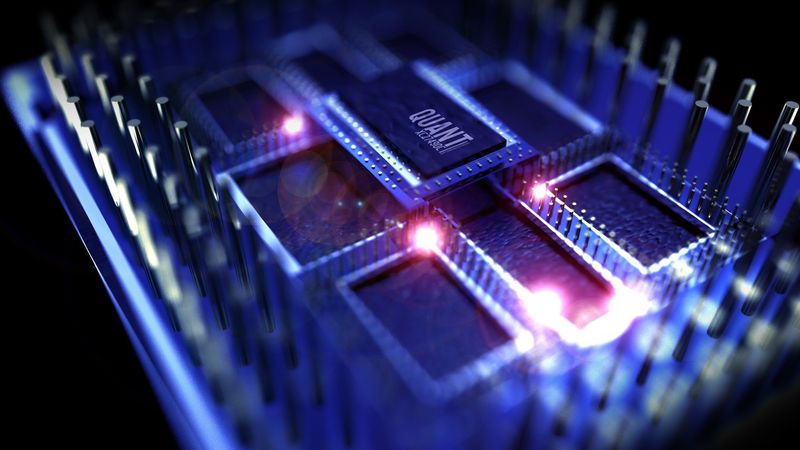Denmark to build its first quantum computer
The Novo Nordisk Foundation provides a huge grant for the development of Denmark’s first quantum computer. DTU participates in the project, which is headed by the Niels Bohr Institute at the University of Copenhagen.

On 21 September, the Novo Nordisk Foundation announced a DKK 1.5 billion investment in building Denmark’s first quantum computer. The work will be headed by the Niels Bohr Institute (NBI) at the University of Copenhagen and will run over the next 12 years. DTU will be a crucial partner in making the project a success.
According to the foundation’s press release, the ambition is to have Denmark's first fully functional and universally usable quantum computer by 2034.
“With this long-term grant, we want to make Denmark a world leader in quantum research, a field with enormous potential. We want to create, mature, and develop technology that can solve major and current challenges within health, sustainability, and other areas,” says Mads Krogsgaard Thomsen, CEO of the Novo Nordisk Foundation.
In addition to the Niels Bohr Institute, researchers from Aarhus University, the University of Toronto (Canada), Massachusetts Institute of Technology (USA), and DTU, represented by DTU Electro and DTU Nanolab, are participating in the project. DTU Prorector Rasmus Larsen is pleased with the large investment in the development of the first Danish quantum computer:
“The timing is incredible. Firstly, in terms of research, we are now at a level where this is possible. Secondly, and just as importantly, more and more Danish companies are what is called ‘quantum ready’, i.e. ready to implement and use quantum technology. Denmark is already well on its way, and many activities at DTU are aimed at normalising the use of quantum technology in society. The grant from the Novo Nordisk Foundation is a huge boost that allows Danish universities and companies to truly take the lead in quantum technology.”
Professor Leif Oxenløwe explains about the contribution from DTU Electro:
“We will act as a kind of ‘satellite’ for the project. Among other things, it will be our task to develop the optical chips that can handle and process the optical qubits that are developed at the Niels Bohr Institute. This means that we must design, fabricate, test, and demonstrate optical quantum computer chips,” he says.
In addition, it can be expected that DTU Nanolab will be responsible for part of the production of the chips that will be a part of the quantum computer.
About the programme
The Novo Nordisk Foundation’s Quantum Computing Programme is a collaboration between the Novo Nordisk Foundation and the Niels Bohr Institute at the University of Copenhagen and will run for the next 12 years.
The mission is to develop and build quantum computer hardware and algorithms for a quantum computer that can solve important problems in life sciences.
Among the other participants in the programme are researchers from DTU (Kongens Lyngby), Aarhus University, the University of Toronto (Canada), and the Massachusetts Institute of Technology (USA).
The programme will focus on developing materials and hardware for the first seven years to build qubits. Simultaneously, different quantum platforms will be explored, and the most suitable ones will be determined. The programme will collaborate with life sciences researchers to guide the technology's development.
In the last five years of the programme, the technology must be scaled up so that, ultimately, a quantum computer is developed that can solve relevant problems in life sciences that current computers cannot.
Source: The Novo Nordisk Foundation